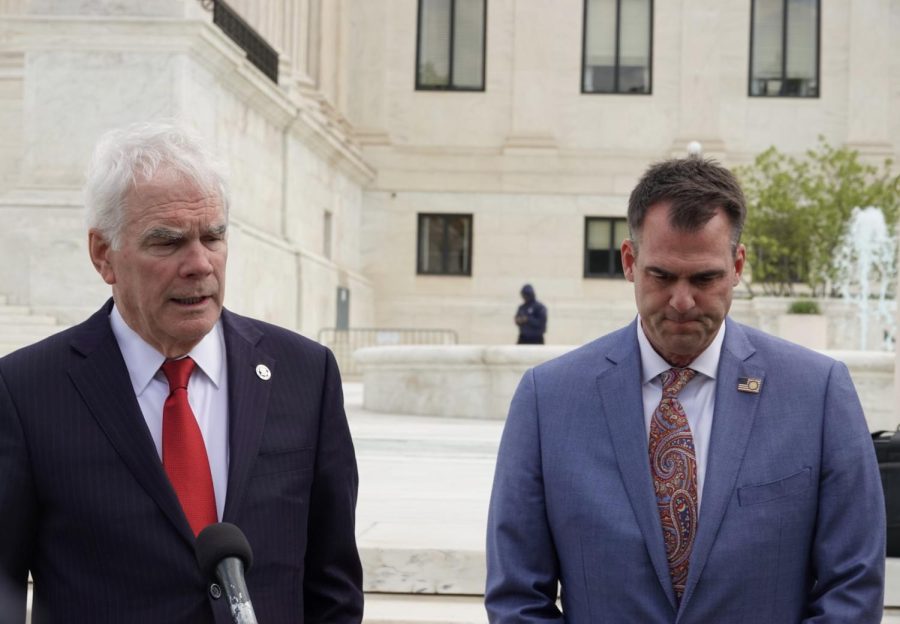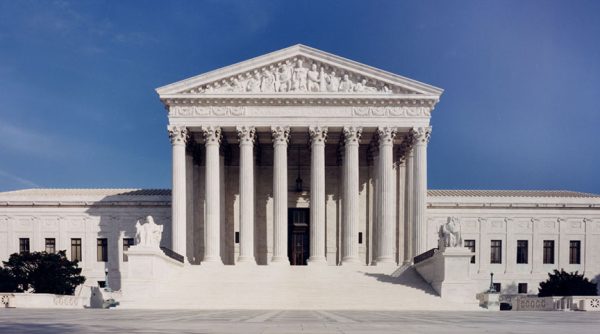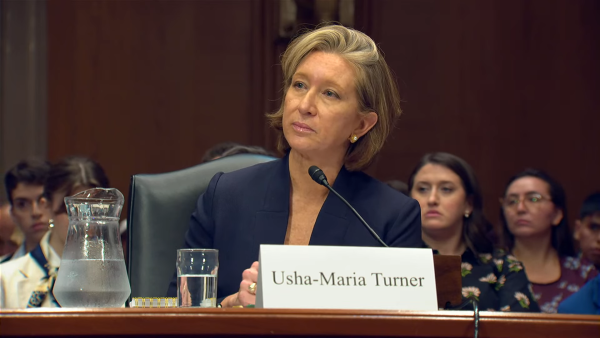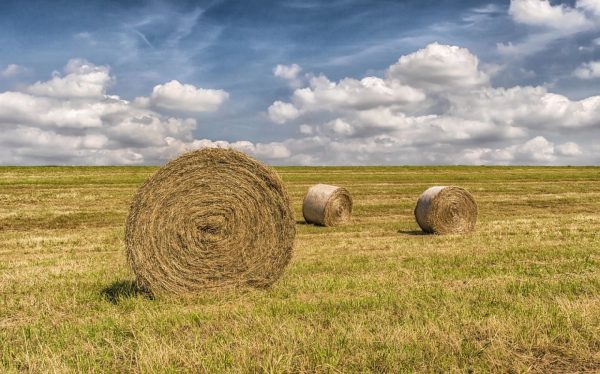Oklahoma and tribes’ tempers flare as Supreme Court case heats up
Attorney General John O’Connor and Oklahoma Gov. Kevin Stitt attend a press conference after the hearing. (Gaylord News/Mikaela DeLeon)
WASHINGTON – An attorney arguing for the state of Oklahoma told U.S. Supreme Court justices that “thousands of crimes” have gone unprosecuted since a ruling two years ago removed state jurisdiction over many crimes in a large part of eastern Oklahoma.
The debate over criminal justice authority on tribal lands was at the center of the hearing. Oklahoma v. Castro-Huerta will determine whether the state or tribal nations should try non-Natives who commit crimes against Natives on reservations.
Kannon Shanmugam, arguing for Oklahoma, said thousands of crimes are going unprosecuted because the federal government, which has sole jurisdiction over that category of cases due to the ruling in McGirt v. Oklahoma, has been unable to keep up. Shanmugam also said the court has never determined what is “sufficient enough” to justify tribal jurisdiction in cases where the tribes ordinarily lacked jurisdiction.
But Justice Neil Gorsuch asked Shanmugam how he intended to argue his case given 200 years of precedents.
“…you have 200 years of history suggesting otherwise and you have tribes before us saying otherwise. And you have former U.S. attorneys, saying otherwise. What do we do about that?” Gorsuch asked.
When Shanmugam stated he was unsure why the tribes had taken a position against Oklahoma’s concurrent jurisdiction, he was met with pushback.
“It’s easy enough to say that standing at the podium in Washington, D.C., but the history and the reality should stare us all in the face. There’s a reason why they’ve resisted jurisdiction over crimes against Indian victims,” Gorsuch said.
Shanmugam said Oklahoma views concurrent jurisdiction as a means of “having an interest in protecting all of its citizens.”
A recent article in The Atlantic scrutinized Oklahoma’s claim of a loss of jurisdiction in “over 18,000 prosecutions a year” and stated that the magazine was unable to verify that number with any state entity.
Zachary Charles Schauf, arguing for Victor Manuel Castro-Huerta, focused on the General Crimes Act and the Major Crimes Act. Schauf said Oklahoma lacks jurisdiction in tribal lands because Congress exercised its exclusive power over Indian affairs to provide for exclusive federal jurisdiction.
Castro-Huerta was convicted of neglecting his stepdaughter in 2015. Castro-Huerta was not Native, but committed the crime on reservation land against his Native stepdaughter. Under the McGirt ruling, his sentence was vacated but sparked debate around whether non-Native criminals who committed crimes on reservations against Natives were under tribal jurisdiction.
The General Crimes Act cited by Schauf created a federal court jurisdiction for certain types of offenses committed by Natives against non-Native victims and for all crimes committed by non-Natives against Native victims. The Major Crimes Act similarly provided federal court jurisdiction for certain crimes committed by Natives on reservations.
In a press conference on Wednesday, Cherokee Nation Principal Chief Chuck Hoskin Jr. admonished the state’s continued efforts to reverse McGirt, calling Republican Gov. Kevin Stitt “the most anti-Indian governor in the history of Oklahoma.”
But Hoskin said he feels “confident” with the hearing because of the SCOTUS’s past adherence to tribal law precedent.
“We can work together. I just wish the governor of the state of Oklahoma would join us in that effort,” Hoskin said.
Hoskin said the nation takes its responsibility to provide a “blanket of protection” for everyone on tribal land “very seriously.” He referred to the $30 million the Cherokee Nation has invested in its justice system as an example of the tribe’s commitment to its new role.
Stitt refuted Hoskin’s claims and implied that the tribes are unwilling to work with the state.
“We cannot understand for the life of us why the tribes or, frankly, the federal government would be against concurrent jurisdiction,” Stitt said, “What is the problem with the state of Oklahoma, like we’ve done for 115 years, protecting Native victims?”
The governor said the hearing was a “law and order issue,” and the state’s case pushed for the right to “protect citizens in eastern Oklahoma.”
Stitt has maintained that McGirt has “ripped Oklahoma apart,” but has also said that if the initial decision were limited to major criminal cases, it would be “fixable.” He doubled down on that stance on Wednesday and described his concerns about how McGirt could affect taxes and zoning.
“If we can get past ‘it’s a reservation for all purposes’, remember the Supreme Court said that it was a reservation for the Major Crimes Act, then we can work through it,” Stitt said. “But if this falls into taxation and zoning, again it’s disastrous for our state.”
Justice Stephen Breyer questioned why Oklahoma hasn’t approached Congress for help.
“I mean, if there is crime, particularly in Oklahoma, can’t they ask Congress to provide extra prosecutorial and judicial resources?” Breyer said.
The 2020 McGirt ruling designated 3 million acres in eastern Oklahoma as a 19th-century Muscogee reservation. That landmark decision meant the state could no longer prosecute major crimes committed by members of the Muscogee Nation. The ruling has since been expanded to the Cherokee, Chickasaw, Choctaw, Quapaw and Seminole nations.
Oklahoma Attorney General John O’Connor said he thought Oklahoma’s position was presented “very well.”
“We’re optimistic…we think our position is well-grounded in the law,” O’Connor said.
O’Connor said the next step for Oklahoma and the McGirt decision includes a petition for a future case which would determine, “Who is an Indian?” for purposes of criminal jurisdiction. O’Connor said the petition would target a legal gray area for individuals who were not tribal members when they committed a crime, but joined a tribe during a stage of prosecution.
Gaylord News is a reporting project of the University of Oklahoma Gaylord College of Journalism and Mass Communication.






